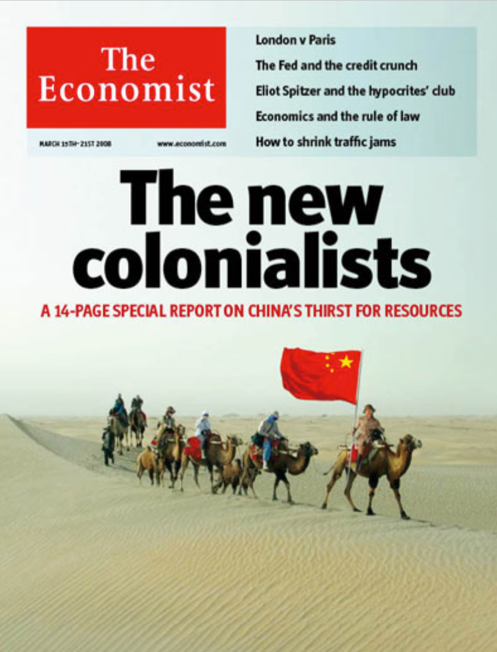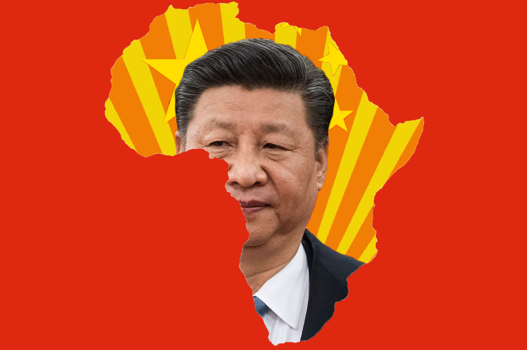Introduction
The scale of the rapidly growing engagement between China and Africa has generated debate around one issue: what motivates this engagement and what are its benefits from Africa’s development? Chinese social media and western social media seem to have different interpretations of this issue, which makes it interesting and meaningful to make comparisons between them.
Chinese Representations:
Video 1:
Video title : <Western Media Debunked: Is China’s aid to Africa neo-colonialism?>
Published by : Global Times (Global Times is an international news newspaper published by People’s Daily, the newspaper sponsored by the Central Committee of the Communist Party of China.)
This video questions western countries’ worries about “Africa being neo-colonized under Chinese debt trap” hilariously. By comparing European powers’ “scramble of Africa” in the late 19th century and China’s aid since the 1950s, the video lists Chinese aids in all kinds, especially in the infrastructure area, such as establishing railways, building schools and modernizing communication.
“Never in history, have Western powers cared so much about the fate of Africa.”
By satirizing the intention of western countries questioning the relationship between China and Africa. The video shows the discontent about European countries’ claim of “Chinese Neo-colonialism in Africa”.
“How humanitarian of them! Though deep down, they may truly view Africa as … (‘shithole’ countries)”

Trump’s speech quoted in the video
The video quotes Trump’s disrespectful speech to show the contradictory attitudes towards Africa and to arouse the anger of people.
“They say that one cannot wake a person who is pretending to be asleep. But if that fake sleeper is snoring, grinding their teeth, and interrupting others, then they should be woken with a slap in the face.”
This metaphor is used to satirize Western countries’ intended ignorance of China’s aids in Africa and malicious distortion of China-Africa relationships.
Video 2:
Video title : < Community of Common Destiny: Neo-Colonialism: What has China done in Africa?>
Published by : CGTN Africa (China International Television, also known as China Global TV Network, is a new international communication agency under China Central Television, which was established on December 31, 2016. CGTN Africa is CGTN’s overseas sub-station in Kenya.)
While acknowledging Chinese aid to Africa, this video also questions “What drives China’s continuing commitment to Africa?”
“Indeed, Africa needs the development expertise China can offer, but what does China get from this relationship? … China’s need for the market and resources Africa has to offer has spotted criticism of neo-colonialism intentions.”
The video gives its answer. Like it is explained by the Chinese University professor in the video, Africa can provide China with more resources and markets, but it’s different from “colonialism”. Instead of being taken away by force, the resources and markets are provided after negotiation.
“I would out-rightly say that the tag of China as a colonial or neo-colonial power is basically part of propaganda. The reality is different. The idea that is governing is a partnership between equals mutual respect and win-win kind of scenarios.”- PROF.Peter Kagwanja, Africa Policy Institute.
By addressing the Africa Policy Institute Professor’s statement, the video tries to convince the audience of the sincere cooperation and win-win scenarios between China and Africa.
Western Representations:
Report 1:
Report title : <A ravenous dragon>
Weblink : https://www.economist.com/special-report/2008/03/15/a-ravenous-dragon
Published by : The Economist (The Economist is a magazine published by the London Economist Newspapers Ltd.,. The magazine’s English-language version can be read weekly by mobile app, website or audio version.)

magazine cover of <The Economist>, Mar 15t,h 2008
The theme of the report could be easily found from the title and the picture attached. Readers can find a straightforward narrative of China’s desire for African resources throughout the text.
Diplomats and pundits, for their part, fear that the West is “losing” Africa and other resource-rich regions. China’s sudden prominence, according to this view, will reduce the clout of America, Europe and other rich democracies in the developing world.
Besides the comment on China’s “neo-colonialism” in Africa, the article also remarks on the competition between China and Western Countries. As it is said, If this baleful influence spreads too widely, the “Washington consensus” of economic liberalism and democracy will find itself in competition with a “Beijing consensus” of state-led development and despotism. The criticism of China’s investment in Africa, as well as the eager for African resources, is bare and explicit in this report.
Report 2:
Report title : <China and Neocolonialism in Africa>
Weblink : https://intpolicydigest.org/2019/02/18/china-and-neocolonialism-in-africa/
Published by : International Policy Digest (the IPD is an independent news website in the United States giving voice to individual writers around the world, IPD mainly focuses on the Asia Pacific, Middle East as well as U.S. policies.)

image of Xi in an African map attached in the report
This report published in February 2019 claims that “China has become the new face of neocolonialism in Africa”. It emphasizes China’s exploitation of resources and markets by loans which could never be repaid.
Kenya was then forced to relinquish control of its largest and most lucrative port in Mombasa to Chinese control as a result of Nairobi’s inability to repay its debts to Beijing. … Other assets related to the inland shipment of goods from the port, including the Inland Container Depot in Nairobi and the Standard Gauge Railway, were also threatened to be compromised in the event of a Chinese port takeover.
… At the same time, Zambia was slated to lose its international airport and national electricity grid to Beijing because of defaults on Chinese loans.
The terms of “forced to”, “threatened to”, “compromised in” and “slated to” indicate a vivid picture of China forcing Africa signing unequal treaties.
Conclusion
When talking about China-Africa relationships, western countries emphasize the debts given by China which could not be repaid in the long term and links it to China exploiting Africa’s resources and markets. They may not deny the Chinese aid for African development, but they pay more attention to China’s self-profit from the collaboration.
On the other side, Chinese social media emphasizes the long history of China-Africa relationship and negotiated collaboration as a response to “unequal cooperation to meet the requirements of lateral development”.
The development of the capacity of Africa indeed indicates more chances for a cooperative partner in the future, that’s also the reason why competence between China and Western countries is becoming more and more intense now.


